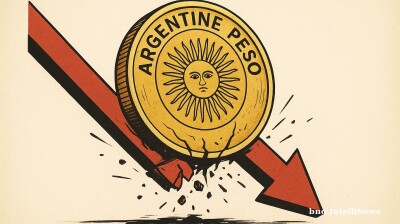President Prabowo Subianto’s first speech at the United Nations was not a cautious introduction but a bold intervention, as Antaranews extensively reports. Addressing the High-Level Conference on 'Palestine and the Two-State Solution' in New York, he delivered a stark condemnation of the violence in Gaza, framing Israel’s military campaign as genocidal. His words underscored the scale of the humanitarian catastrophe: tens of thousands of Palestinians killed, the majority women and children.
Yet Prabowo did more than condemn. He laid out a political and diplomatic roadmap that sought to move beyond rhetoric, combining Indonesia’s moral voice with concrete offers to help shape peace on the ground.
Endorsing the two-state solution
Central to his address was the unequivocal endorsement of the two-state solution as “the only path to lasting peace.” Prabowo pressed UN member states to act decisively, urging immediate recognition of Palestine’s sovereignty. Recognition, he argued, is not merely symbolic but the foundation for meaningful peace. The message was clear: history does not stand still, and delaying recognition only prolongs suffering and instability.
The timing of this declaration was deliberate. Only days earlier, the UN General Assembly had adopted the New York Declaration, endorsed by 142 states, setting out commitments to ceasefire, humanitarian access, and a pathway to Palestinian statehood. Prabowo’s speech aligned Indonesia squarely with this momentum, reinforcing the sense of urgency.
Perhaps the most striking element of Prabowo’s intervention was Indonesia’s readiness to send peacekeepers under a UN mandate. By signalling willingness to commit forces, Jakarta moved from advocacy to actionable diplomacy. Indonesia is already one of the largest contributors to UN peacekeeping missions, but a Gaza deployment would carry vastly higher stakes, given the volatility and political sensitivities of the conflict.
Operational hurdles remain significant. A mission would require Security Council authorisation, agreement on rules of engagement, and cooperation from parties on the ground. Nonetheless, the pledge is a powerful statement of intent: Indonesia is not only condemning violence but offering to shoulder responsibility for stabilisation.
Prabowo also introduced a new element into Indonesia’s long-standing Palestine policy: a conditional pathway to recognising Israel. He declared that Indonesia would recognise Israel immediately if Israel first recognised Palestine as an independent and sovereign state. In effect, he positioned recognition as a reciprocal bargain that could unlock normalisation.
This is a rare move for a major Muslim-majority nation and could reframe regional diplomacy. For countries seeking leverage to bring Israel to negotiations, Indonesia’s conditional recognition offers both incentive and political cover. Yet it also carries risks: without reciprocal gestures from Israel, the proposal could harden positions or invite criticism from constituencies opposed to any recognition.
Diplomatic calculus
Prabowo’s approach blends moral leadership with pragmatic statecraft. By calling out atrocities in Gaza, he consolidates domestic and regional support for Indonesia’s long-standing pro-Palestine stance. By pledging peacekeepers and signalling conditional recognition of Israel, he casts Indonesia as a responsible international actor prepared to transform words into commitments.
This dual posture strengthens Indonesia’s credibility as a bridge-builder. It appeals simultaneously to domestic audiences demanding solidarity with Palestine and to international partners searching for workable solutions. In this sense, the speech was as much about Indonesia’s global positioning as it was about Palestine.
The effectiveness of Prabowo’s gambit depends on several factors. First, the politics of the UN Security Council: authorising a mission for Gaza will be contentious, with the risk of vetoes from permanent members. Second, the feasibility of deploying troops into such a volatile environment: logistics, mandate clarity, and casualty risks will be daunting. Third, the reception of Indonesia’s conditional recognition proposal: while applauded at the UN, it requires careful diplomacy to avoid alienating allies or being dismissed as unrealistic.
A turning point for Indonesia
Prabowo’s UN debut demonstrates Indonesia’s willingness to take on greater responsibility in shaping international peace and security. It marks a pivot from being a consistent moral advocate for Palestine to becoming a strategic actor offering concrete pathways to resolution. Whether these proposals translate into action will depend on global diplomacy, but the speech itself was significant: it repositioned Indonesia as more than a bystander and elevated its influence in the Palestinian question.
The closing words of Prabowo’s speech: “Peace now. We need peace”, were met with applause in New York. Beyond the applause, however, lies the test of whether Indonesia’s blend of moral clarity and pragmatic offers can help shift a decades-old conflict toward a more just and peaceful horizon.
Features
_-_PD_1758849098.jpg)
Skull discovered in China may – or may not - rewrite human history
Questions are already being raised though, and with China having in recent years made at least half a dozen claims on much more recent historical issues that have little to no archaeological evidence to back them.

Young Moldovans face uncertain future as pivotal election approaches
With a razor-thin margin between pro-EU PAS and pro-Russian Patriotic Bloc, voters expect Moldova's general election to be a battle for the country’s future.

Poland building a drone wall to protect Europe
Poland will lead an effort to build a “drone wall” to block Europe’s airspace to swarms of Russian UAVs should a pan-regional war ever break out.

Trump administration intensifies pressure on Iraq to cut ties with Iran
The US has ramped up a series of behind-the-scenes pressure tactics on Iraq aimed at reducing Iranian influence across key sectors.



_1758174730.jpg)
